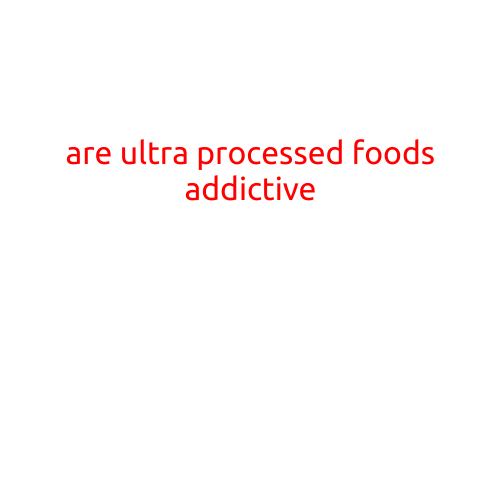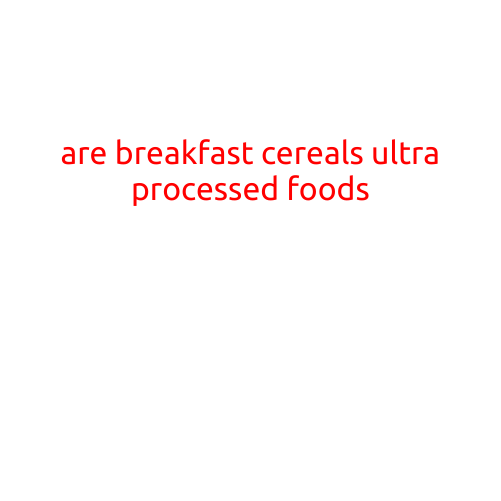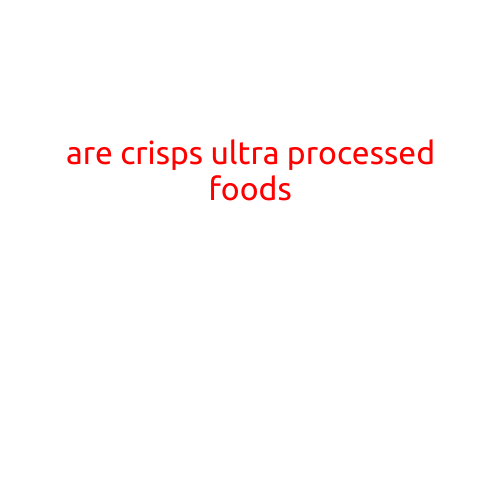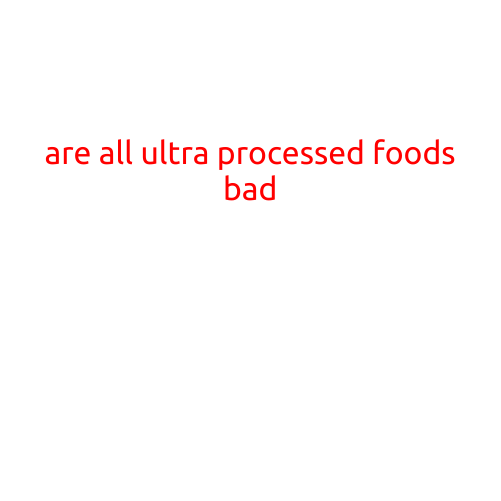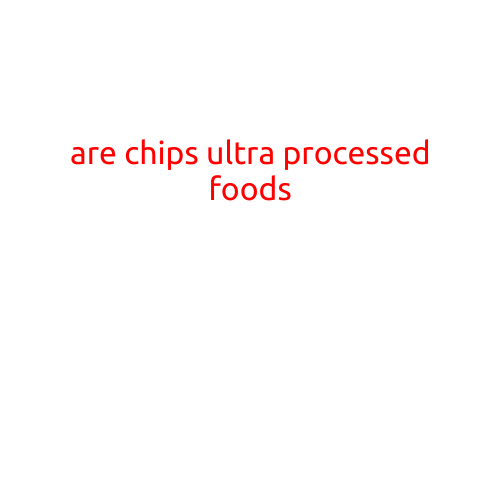
Are Chips Ultra-Processed Foods?
The snack aisle in your local grocery store is lined with a wide array of tasty and convenient options. Among the most popular choices are potato chips, tortilla chips, and other types of fried and baked snacks. While they may be a tasty addition to your favorite meals or a satisfying snack on their own, a growing body of research suggests that many types of chips are ultra-processed foods, posing potential health risks for consumers.
What are Ultra-Processed Foods?
Ultra-processed foods are foods that have undergone significant processing and manipulation, often involving multiple steps and ingredients. This can include foods that are created in laboratories, are made from genetically modified organisms (GMOs), or are made from a combination of different foods. Ultra-processed foods often lack whole food nutrients and have high levels of added sugars, salt, and unhealthy fats.
Are Chips Ultra-Processed Foods?
Many types of chips are considered ultra-processed foods. Here’s why:
- Multiple ingredients: Chips are often made from a combination of ingredients, including potatoes, grains, oils, flavorings, and preservatives. These ingredients are often processed separately before being combined to create the final product.
- Frying and baking: Chips are typically made by frying or baking potato slices or other ingredients in oils, which can add calories, fat, and unhealthy compounds.
- Additives and preservatives: Many chips contain added sugars, salt, and artificial flavorings or preservatives to enhance their taste and extend their shelf life.
- No requirement for whole foods: Chips are not considered a whole food because they are not a single ingredient or a combination of unprocessed foods. Instead, they are a manufactured product made from multiple processed ingredients.
Health Risks Associated with Ultra-Processed Foods
Consuming ultra-processed foods like chips on a regular basis has been linked to a range of health problems, including:
- Weight gain and obesity: Ultra-processed foods are often high in calories, sugar, and unhealthy fats, which can lead to weight gain and obesity.
- Increased risk of chronic diseases: Consuming ultra-processed foods has been linked to an increased risk of chronic diseases like heart disease, type 2 diabetes, and certain types of cancer.
- Negative impacts on gut health: A diet high in ultra-processed foods can disrupt the balance of gut bacteria, leading to changes in metabolism and potentially contributing to chronic diseases.
- Nutrient deficiencies: Ultra-processed foods often lack essential vitamins, minerals, and other nutrients, which can lead to deficiencies and related health problems.
Alternatives to Ultra-Processed Chips
If you’re looking to reduce your consumption of ultra-processed chips, consider the following alternatives:
- Homemade chips: Make your own chips at home using whole potatoes or other vegetables. This can help you control the ingredients and avoid added preservatives and flavorings.
- Baked snacks: Try baked snacks like sweet potato chips, kale chips, or vegetable chips made from a variety of colorful vegetables.
- Whole grain crackers: Look for whole grain crackers or rice cakes that can be used as a crunchy snack or paired with healthy toppings like avocado or hummus.
- Fresh fruit: Fresh fruit is a nutritious and satisfying snack that’s easy to prepare and transport.
Conclusion
While chips may be a tasty and convenient snack option, it’s important to recognize that many types of chips are ultra-processed foods that pose potential health risks. By making informed choices about the foods we eat and incorporating more whole, nutrient-dense foods into our diets, we can reduce our risk of chronic diseases and maintain optimal health.
